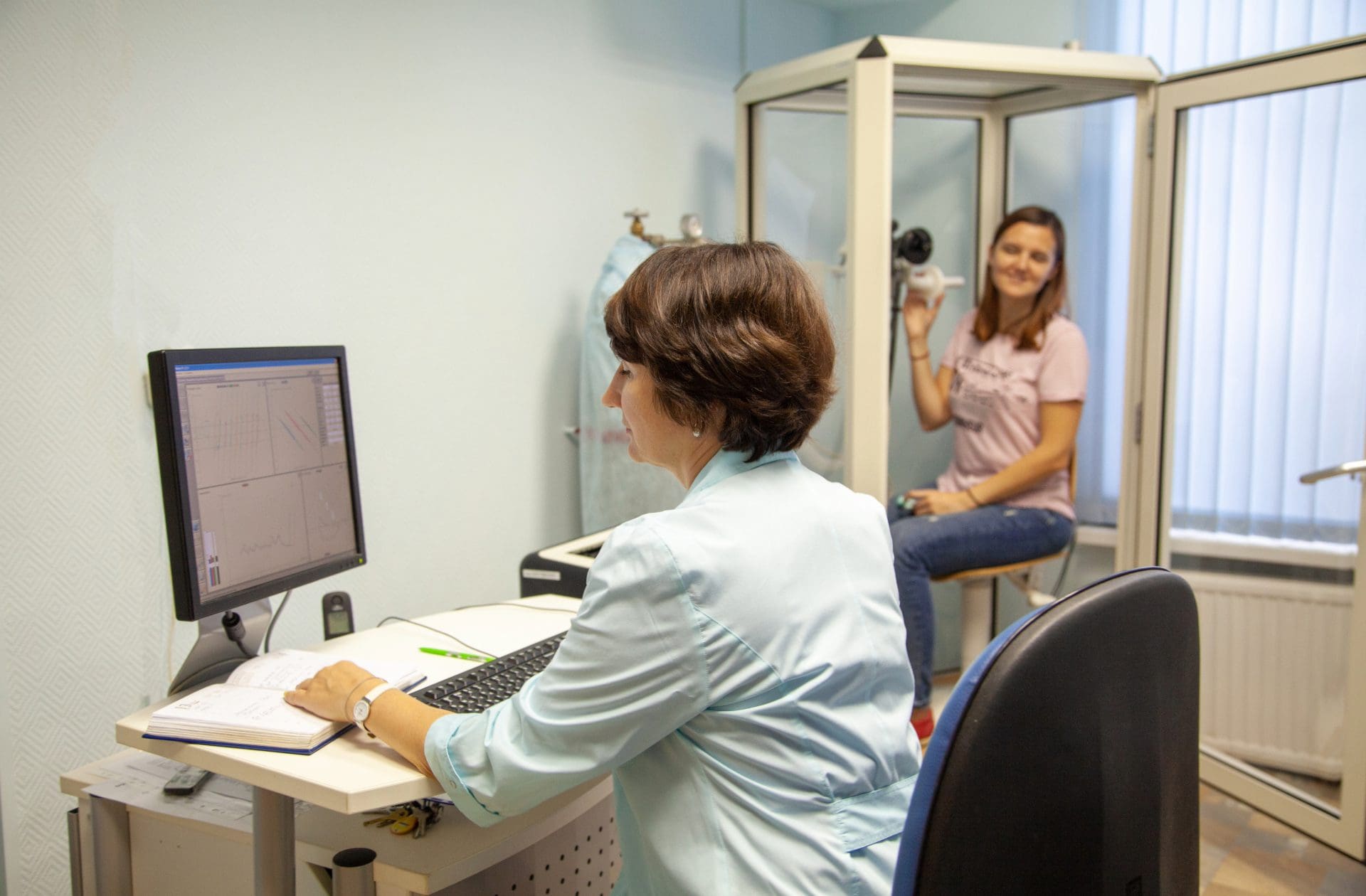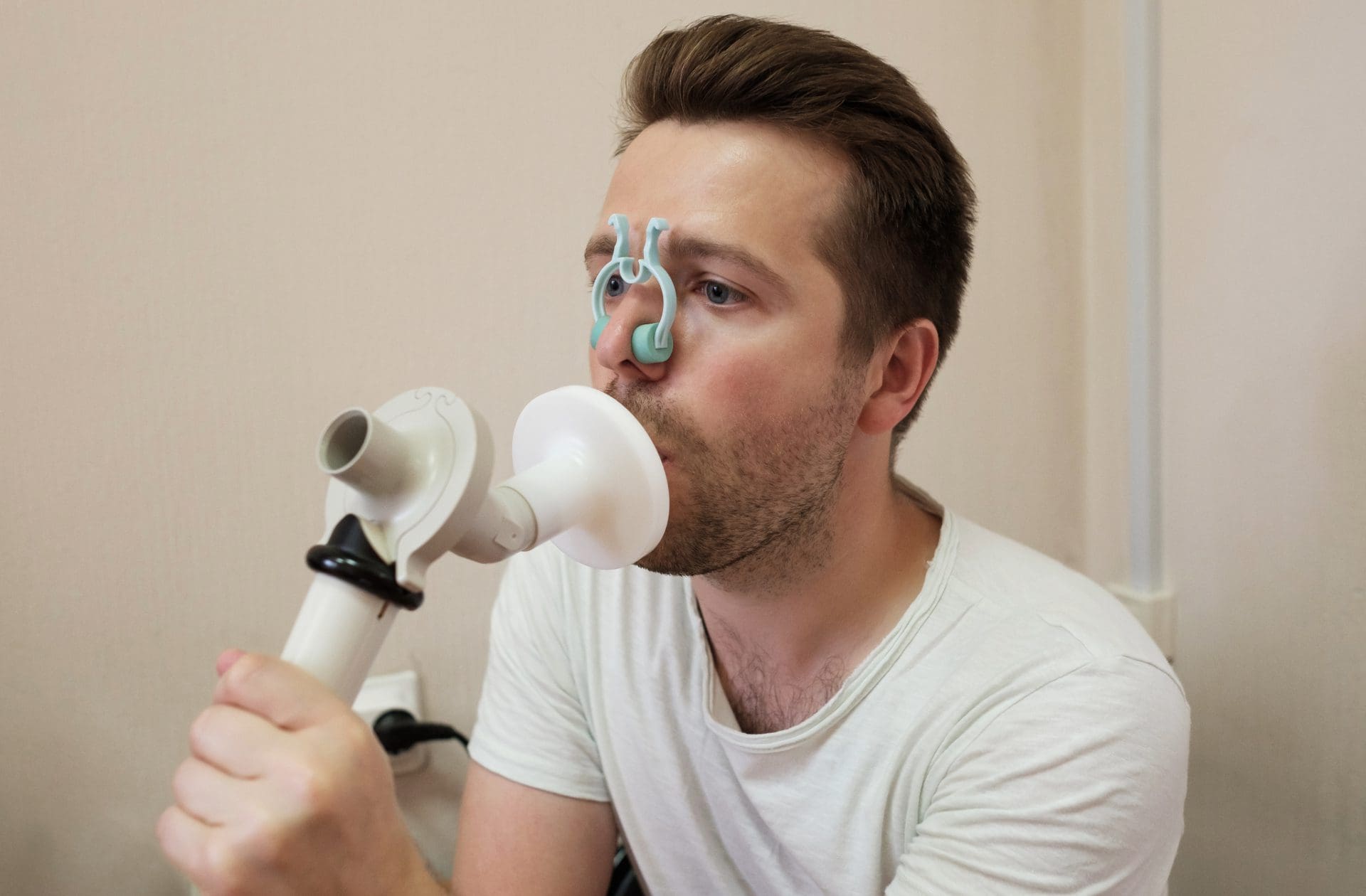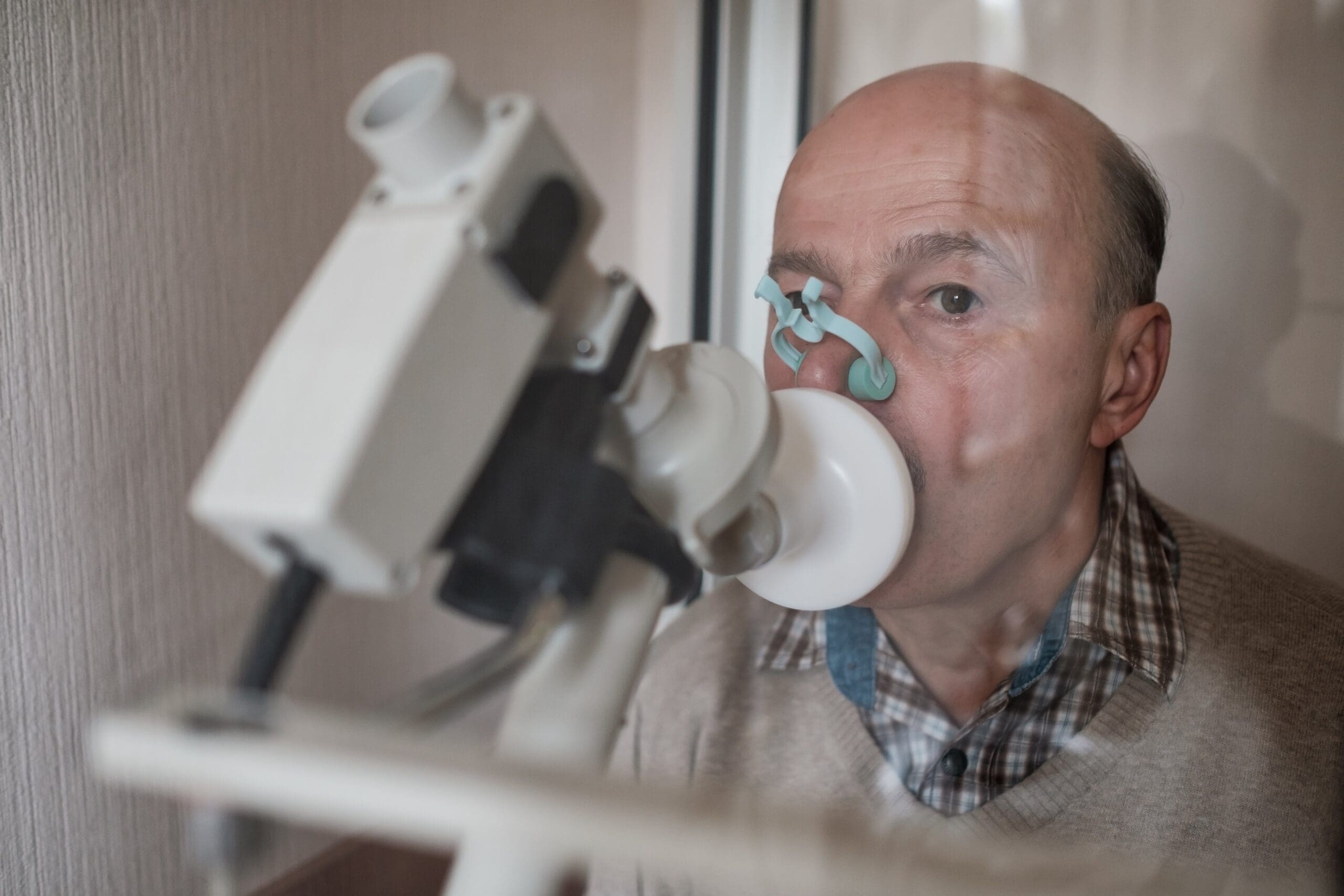Pulmonary function tests are valuable for diagnosing respiratory conditions, evaluating the severity of these conditions, and tracking how they change over time. The results are typically compared to established norms and may require multiple tests to establish a baseline and monitor progress. Interpretation of these results is typically performed by healthcare professionals, particularly respirologists, who can then recommend appropriate treatments or interventions based on the findings.

Pulmonary Function Test (PFT)
A Pulmonary Function Test (PFT), also known as a lung function test, is a group of diagnostic procedures used to assess the function and health of a person’s respiratory system, particularly their lungs. Our tests are performed by registered respiratory therapists, to diagnose and monitor various respiratory conditions, including asthma, chronic obstructive pulmonary disease (COPD), and other lung diseases. Here’s an overview of what a pulmonary function test involves:
Spirometry
This is the most common type of pulmonary function test. It measures the amount of air a person can inhale and exhale and how quickly they can do it. During spirometry, the individual will be asked to take a deep breath and then exhale as forcefully and completely as possible into a device called a spirometer. This test can provide important information about lung function, including lung capacity and airflow limitations.


Lung Volume Measurement
Lung volumes and capacities are measured to assess the amount of air a person’s lungs can hold. This helps in the diagnosis of restrictive lung diseases.
Diffusion Capacity Testing
This test measures how efficiently oxygen passes from the lungs into the bloodstream. It is particularly useful in diagnosing and assessing lung diseases like pulmonary fibrosis.


Arterial Blood Gas
An arterial blood gas (ABG) test is a medical diagnostic test that measures the levels of certain gases in the arterial blood. It provides important information about a person’s respiratory and metabolic function and can help healthcare professionals assess the patient’s overall health.
What you need to know before your PFT appointment
Not sure what to expect?
We’ve provided answers to your questions to ensure you’re fully prepared for your visit. Download as a printable PDF file.

Download our Referral Form
Download our referral form and bring this to your family doctor.


